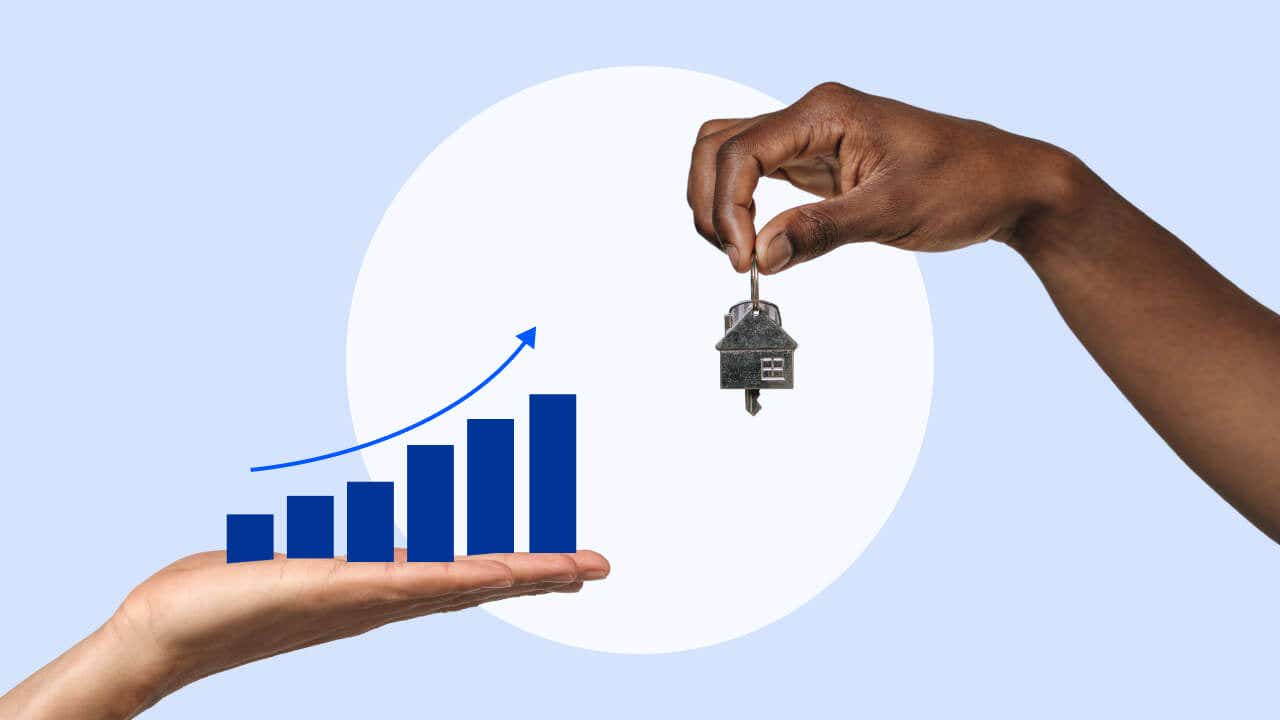Can I use my 401(k) to buy a house?




Key takeaways
- It is possible to use funds from your 401(k) account to buy a house. However, doing so might incur both a penalty and income taxes.
- Borrowing from your 401(k) — essentially loaning money to yourself — will avoid potential withdrawal penalties. You will still need to pay interest on the loan, though.
- Generally, it’s best to leave these retirement funds for your retirement and explore other options first before using 401(k) funds for a home purchase.
For most people, buying a house is the biggest expense of their lifetime. If you are lucky enough to have a robust 401(k) retirement plan, you might be wondering whether you can tap those funds for the down payment on your home purchase.
The short answer is yes, you can. After all, the money in your 401(k) is yours, and you can use it as you like. However, your 401(k) probably shouldn’t be your first choice for coming up with that cash. In most cases, you’ll have to pay a penalty, plus income tax if you take money from your 401(k) too early. And even if you manage to avoid these financial bites, you’ll be missing out on years of tax-deferred growth of your retirement nest egg.
Nevertheless, it is possible to tap your 401(k) to buy a house. Essentially, you have two options: borrowing or withdrawing. Here’s what to expect with both approaches.
Withdrawing 401(k) funds to buy a house
These accounts are designed to provide you with an income in retirement, and there are rules to encourage you to leave the money untouched until retirement age (or close to it). Normally, if you take funds from your 401(k) before then, you have to pay a 10 percent penalty on them, as well as income tax. That makes early withdrawal a costly option.
If you have a Roth 401(k), in which taxes on your contributions are already paid, you might be exempt from this rule. Your life circumstances may also qualify you for exemption — for example, if you have significant medical expenses or are facing foreclosure. Crucially, you can also get an exemption for a down payment or closing costs for a home purchase, because the IRS categorizes the lack of housing as a kind of hardship. This can be a bit tricky, though.
In some cases, you can withdraw funds from your 401(k) for a down payment on the purchase of a principal residence: The IRS may consider this a type of hardship withdrawal, if you are in “immediate and heavy financial need.” However, it may not be exempt from the additional 10 percent tax — in other words, you can withdraw the money, but you might still have to pay the penalty.
“Withdrawing funds from a 401(k) for a down payment or closing costs may be an option, but it’s essential to understand the potential taxes and penalties involved if the withdrawal is made before age 59½,” says Jacqueline Reeves, director of retirement plan services at Bryn Mawr Trust a WSFS Company, which has locations in five states.
“Some exemptions and strategies allow access to these funds without penalties under specific circumstances,” Reeves says, “but each retirement plan operates according to its unique documents, which may define terms differently or restrict certain options.” Check with your employer and the rules they’ve set up for your specific 401(k).
Borrowing 401(k) funds to buy a home
The second option for accessing your 401(k) funds to buy a house is to take out a loan from your plan. Since this is essentially loaning money to yourself, you don’t have to pay the early withdrawal penalty or income tax on the amount you initially withdraw. As long as you pay it back on time, you won’t owe the IRS any extra money for this type of withdrawal.
So how much can you borrow from your 401(k) for a house? The exact amount depends on the balance in your account, but the general rule is that you can take $10,000 or half your vested amount in the plan (whichever is more), up to a maximum of $50,000. This type of loan is provided by your 401(k) plan provider — double check to make sure they allow it — and they will set the interest rates and loan term.
“If your plan permits this type of loan, you’ll generally need to repay it — with interest, often set at the prime rate plus an additional percentage — within five years,” says Reeves. “However, if the loan is used to purchase a primary residence, some plans allow extended repayment terms.”
Can I use my 401(k) to buy a house without penalty?
The best option to avoid paying a penalty when tapping your 401(k) is a loan, because it’s technically not a withdrawal and therefore does not incur income taxes or the early withdrawal penalty.
Should I use my 401(k) to buy a house? Pros and cons
Pros
- It’s a sure thing: Unlike taking out a typical loan, you won’t have to go through a credit check or be approved by a third-party lender to tap into your 401(k).
- It’s fast: You can get the funds quickly, often within a few days.
- It offers good terms: 401(k) loan interest rates are generally a point or two above the prime rate.
Cons
- You’ll likely incur a penalty: If you’re taking an outright distribution, you’ll very likely be charged a 10 percent penalty. You’ll also likely have to pay income tax on the amount you withdraw, which can be particularly costly for higher-rate taxpayers.
- You’ll miss out on interest: When you withdraw money from a 401(k) account, you limit the impact of compound interest on your retirement savings. Assuming a 7 percent annual growth rate, if you take $10,000 out of your 401(k) now, the account will be worth $54,274 less in 25 years.
- You won’t be able to contribute as much: You usually can’t make contributions to the plan during the lifetime of the loan.
Alternatives
Given the consequences, it’s worth considering all your other options first before using your 401(k) funds to buy a home. Look into these alternatives:
- Delay your purchase: If you are able to put off buying a house for a few years, and save up a down payment while continuing to contribute to your 401(k), it’s very likely that you’ll be in a better financial position — both in the short term and whenever you hit retirement age.
- Tap your IRA instead: Traditional IRAs allow you to withdraw up to $10,000 for a house purchase, and unlike withdrawals from a 401(k), there are no penalties attached.
- Explore low-down-payment loans: If you qualify for one of the federal government’s mortgage programs, such as those run by the FHA or VA, you won’t need to come up with as much cash: Their loans typically feature lower minimum down payments than others. The government-sponsored enterprises Fannie Mae and Freddie Mac also sponsor low-down-payment loans. “Low-down-payment mortgage options are a great way to buy a home without the need to take money from an asset,” says Josh Jampedro, a certified mortgage planner with Home Loan Advisors. “These loans are usually not any harder to qualify for than standard conventional mortgages, and in some cases can be easier.”
- Research down-payment assistance programs: It’s also worth checking to see if you qualify for any state or local government’s down-payment assistance programs. Qualified borrowers can get grants or low- or no-interest loans to help with down payment and closing costs. Your real estate agent can help you find programs in your area.
Bottom line
It seldom makes good financial sense to take money out of your 401(k) for non-retirement reasons. The penalties for withdrawals are designed to make it costly to do so, and you’ll miss out on years of interest-free growth on the money you withdraw. If you are buying a house, tapping your 401(k) shouldn’t be one of your first options. “Using retirement funds to buy a home may not be the most economically sound choice for retirement growth, but it could be a viable short-term solution for those prioritizing homeownership today over retirement savings tomorrow,” says Reeves.
If you need to buy a house fast and don’t have or qualify for other options, you could consider taking a 401(k) loan. Just be cautious, and pay it back as quickly as you can so you don’t risk a comfortable retirement.
Why we ask for feedback Your feedback helps us improve our content and services. It takes less than a minute to complete.
Your responses are anonymous and will only be used for improving our website.




